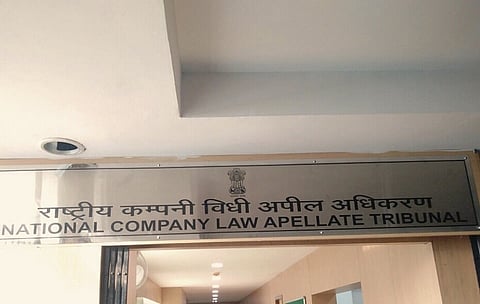
- Latest Legal News
- News
- Dealstreet
- Viewpoint
- Columns
- Interviews
- Law School
- Legal Jobs
- हिंदी
- ಕನ್ನಡ

The NCLAT recently dismissed appeal filed by erstwhile MCX Promoter Jignesh Shah (and others) challenging the NCLT order initiating insolvency proceedings against La-Fin Financial Services (Corporate Debtor).
The Appellate Tribunal ruled that a put-option, or buy-back arrangement, will constitute a ‘financial debt’. The NCLT had initiated Corporate Insolvency Resolution Process (CIRP) against La-Fin in August, 2018, based on a Section 7 application filed by IL&FS Financial Services.
IL&FS held approximately 5% equity in MCX, which upon mutual negotiations, was decided to be sold. It was further agreed that a part of the proceeds obtained by IL&FS from the sale of these shares would be used to purchase 2.46% equity in MCX-SX. This arrangement was recorded in a Share Purchase Agreement (SPA) between the three parties. There was a simultaneous agreement, in the form of a Letter of Undertaking (LoU) between IL&FS as well as La-Fin Financial Services according to which, La-Fin would purchase IL&FS’s equity in MCX-SX within 3 years of the investment date. The LoU stipulated the price at which the transaction would be carried out.
A Scheme of Reduction for MCX-SX was proposed in order to comply with the SEBI (MIMPS) Regulations, which was prejudicial to the interest of IL&FS. However, negotiations between IL&FS and MCX-SX reaffirmed that the commitments under SPA and LoU would be honoured. Once the Scheme of Reduction was sanctioned by the Bombay High Court, Financial Technologies India Limited (FTIL) informed IL&FS that La-Fin’s obligation under the LoU had become infructuous (for want of compliance with MIMPS Regulations). This is where the dispute stems from.
At the appeal stage, however, in addition to challenging the debt altogether, the Appellants also challenged the order on many technical grounds. Firstly, the order was heard by two members of the Mumbai Bench, however was signed by only member and subsequently, by an addendum-cum-corrigendum the other member agreed and consented to the admission order. The NCLAT found that Section 420(2) of the Companies Act, 2013 read along with the NCLT Rules allows the NCLT to make such modifications.
Secondly, the admission was challenged on grounds of limitation since the debt pertains to 2012. The NCLAT, however, noted the ‘continuing cause of action’ as the debt has been under challenge at the Bombay High Court all this while and was transferred to the NCLT only upon introduction of the IBC.
On the point of whether a put-option, or buy-back arrangement, would amount a ‘financial debt’, the NCLAT recorded the observations made by Bombay High Court,
“In a buy-back agreement of the nature involved in the present case, the promissor who makes an offer to buy-back shares cannot compel the exercise of the option by the promisee to sell the shares at a future point in time. If the promisee declines to exercise the option, the promissor cannot compel performance. A concluded contract for sale and purchase of shares comes into existence only when the promisee upon whom an option is conferred, exercises the option to sell the shares“
The High Court had further held that,
“A buy back confers an option on the promisee and no contract for the purchase and sale of shares is made until the option is exercised. The promissor cannot compel the exercise of the option and if the promisee were not to exercise the option in future, there would be no contract for the sale and purchase of shares. Once a contract is arrived at upon the option being exercised, the contract would be fulfilled by spot delivery and would, therefore, not be unlawful. “
Based on the High Court ruling, the NCLAT found that a contract for sale and purchase came into existence when IL&FS decided to exercise its option to prompt sale of shares to La-fin. It further held that the amount paid by IL&FS was tied with a ‘time value of money’ particularly when one of the conditions related to an ‘internal return rate of 15%’ on the transactions. The debt in question was thus held to be a ‘financial debt’.
The NCLAT dismissed the appeal accordingly.
(Read the judgment)